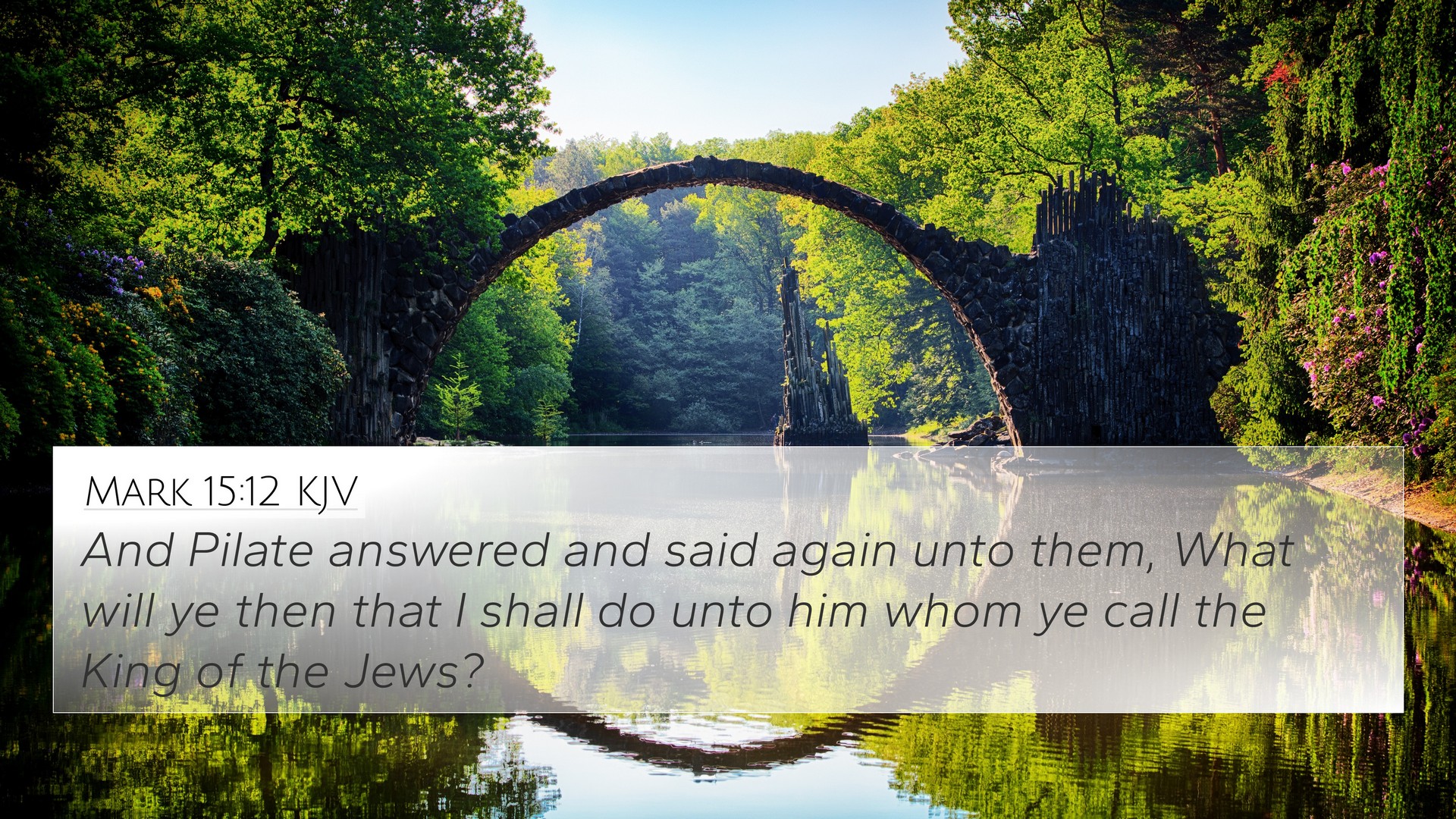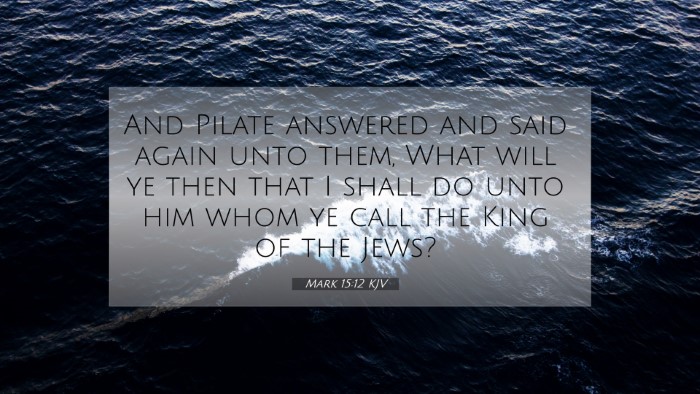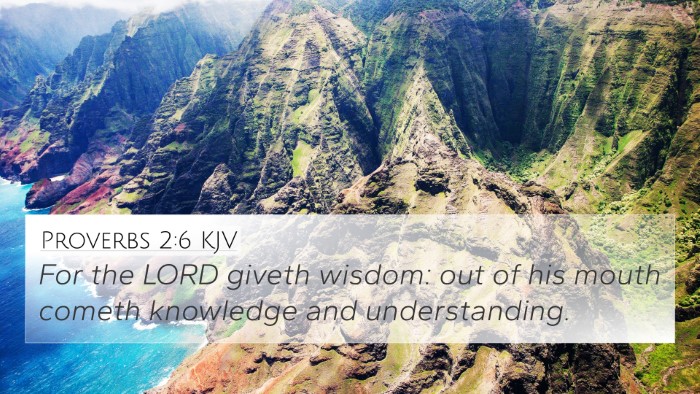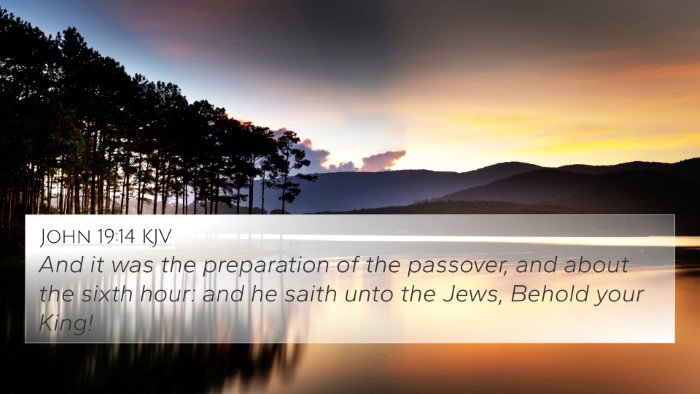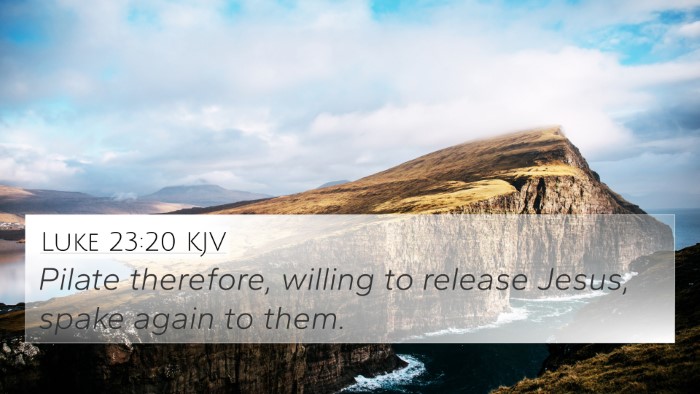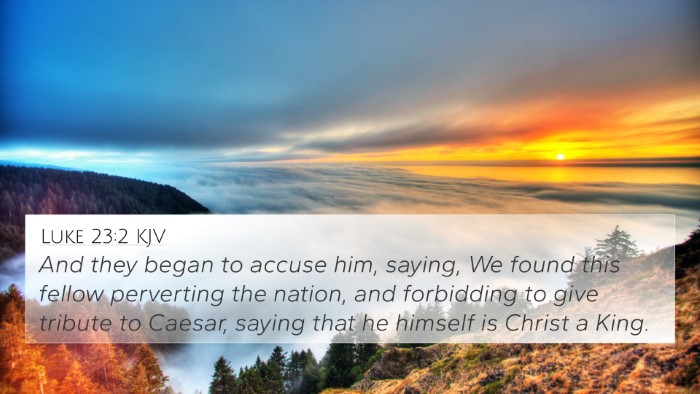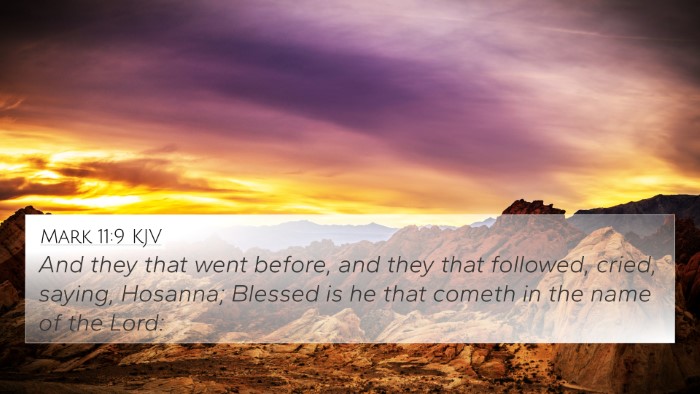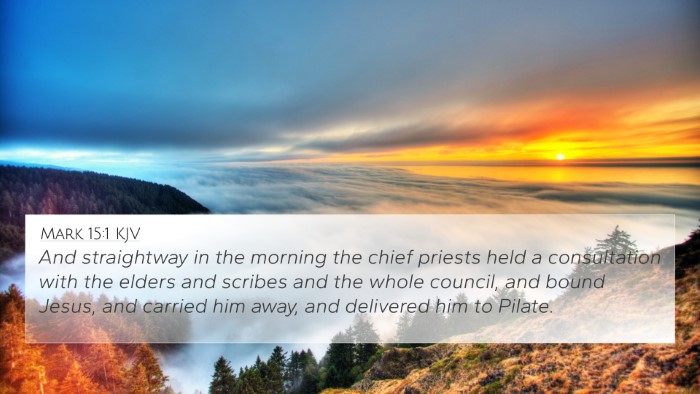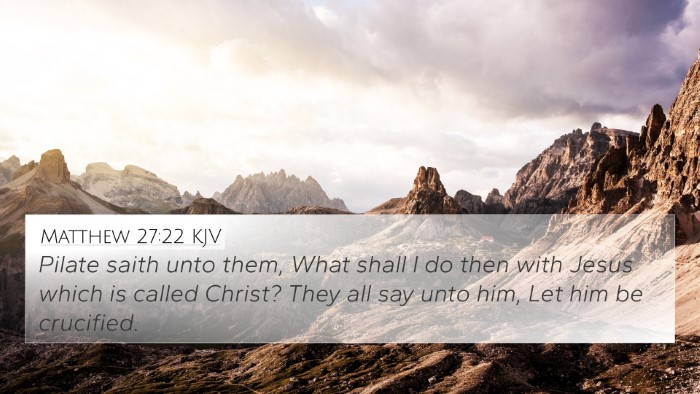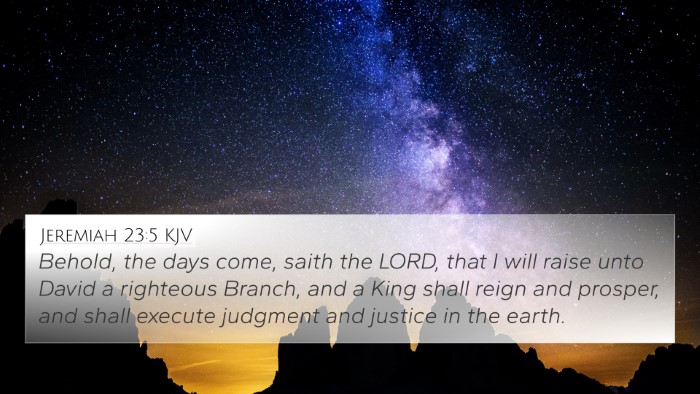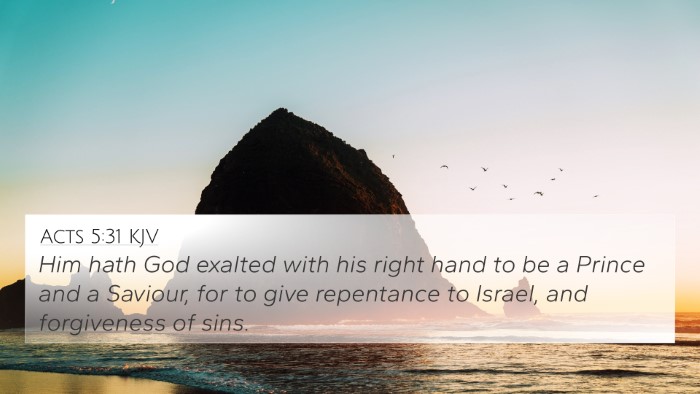Understanding Mark 15:12
Mark 15:12 reads: "And Pilate answered and said again unto them, What will ye then that I shall do unto him whom ye call the King of the Jews?" This verse encapsulates a pivotal moment of decision and moral conflict, represented through the character of Pontius Pilate. This commentary aims to elucidate the deeper meanings of this verse, drawing from the insights of renowned public domain commentators such as Matthew Henry, Albert Barnes, and Adam Clarke.
Contextual Background
This verse occurs during the trial of Jesus, where Pilate is faced with the crowd's demands for Jesus' fate. The political and social tensions of the time, coupled with Pilate's role as a Roman authority, highlight the grave nature of this decision. Pilate attempts to shift responsibility for the outcome to the crowd, a reflection of his inner turmoil and desire to avoid making a definitive judgment himself.
Commentary Insights
- Matthew Henry's Commentary:
Henry underscores the irony of Pilate's question, emphasizing that despite his authority, he is caught in a web of public opinion and fear of unrest. Pilate's query shows an attempt to understand the will of the people, yet it simultaneously reveals his moral failings as he does not stand firm in justice.
- Albert Barnes' Notes:
Barnes points out that this question reflects Pilate's conflicted conscience. As a governor whose role is adjudicate fairly, he paradoxically allows himself to be swayed by the crowd's voice, demonstrating the universal struggle between moral duty and external pressure.
- Adam Clarke's Commentary:
Clarke highlights the significance of Jesus being called "the King of the Jews" in this context. It underscores the political implications of Jesus’ identity and the threat He posed to both Jewish leaders and Roman authority. Clarke notes this opens a conversation about the true nature of kingship and sovereignty.
Thematic Connections
When examining Mark 15:12, we can identify numerous thematic connections and cross-references within the Bible:
- John 18:37: Jesus speaks to Pilate about His kingship, emphasizing truth.
- Matthew 27:22: The crowd calls for the release of Barabbas instead of Jesus, a pivotal moment of choice.
- Luke 23:20-21: Pilate attempts to release Jesus, but the crowd insists on His crucifixion.
- Isaiah 53:3: The prediction of Jesus being rejected by men, which is fulfilled in the actions of the crowd.
- Acts 3:14: Peter’s sermon highlights the crowd's rejection of the Holy One and the Just.
- Philippians 2:7-8: Jesus’ humility and obedience to death, connecting with His treatment by Pilate.
- Romans 5:8: The concept of Christ dying for the ungodly resonates with Mark 15:12's themes of human rejection.
- Hebrews 12:2: Jesus endured the cross, offering insight into His response to Pilate's question.
- Matthew 28:18: The acknowledgement of Jesus' ultimate authority, contrasting Pilate's dilemma.
Inter-Biblical Dialogue
Mark 15:12 engages with broader biblical themes of authority, justice, and sacrifice. The question posed by Pilate serves as a rhetorical device inviting readers to contemplate the nature of true power and leadership as it relates to spiritual truths presented throughout scripture.
Application and Reflection
This verse challenges believers to consider how they respond to moral dilemmas within their own lives. Just as Pilate faced the choice of whether to uphold justice or yield to public pressure, modern readers are called upon to reflect on their convictions. Are we voices for truth in the face of societal influence?
Conclusion
Mark 15:12 remains a profound moment in scripture that showcases the tensions between power, public sentiment, and personal conviction. Cross-referencing this verse with others deepens the understanding of its significance within the biblical narrative. By analyzing the connections between these verses, believers can better grasp the implications of Jesus’ identity as the King, His mission, and the human reactions to Him.
